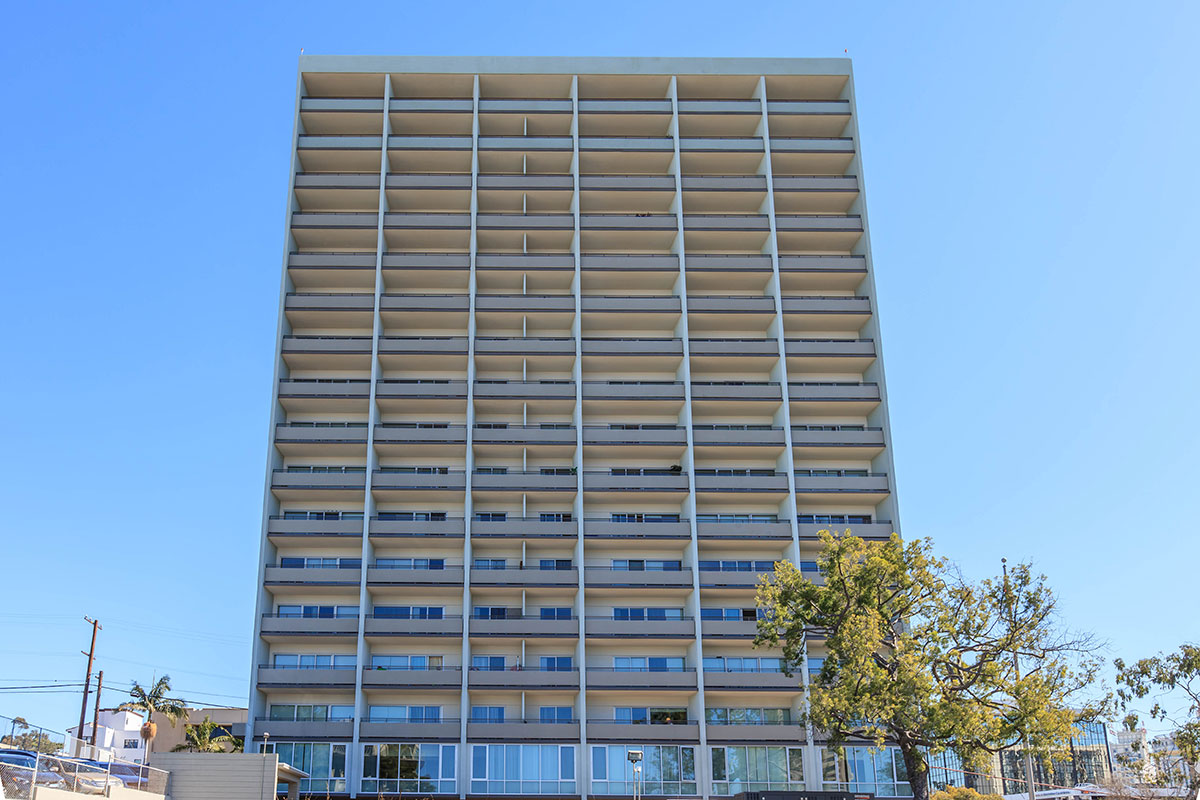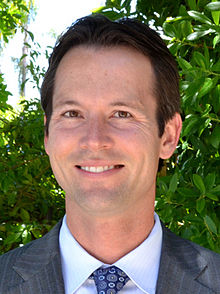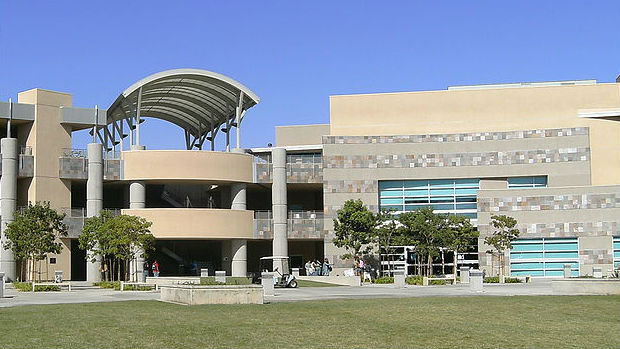Daily Business Report-May 18, 2016
California Energy Commission Grant
To Spur Regional Clean Energy Projects
By Michael Price | SDSU NewsCenter
San Diego’s innovation ecomony will receive a boost from a recent $5 million grant from the California Energy Commission, which funds the creation of the San Diego Regional Innovation Cluster.
That’s a consortium of nine organizations, including San Diego State University, which will receive $1 million to help advance the commercialization of potential clean energy solutions in the San Diego region.
In practice, that will mean helping SDSU’s faculty, students and staff, as well as local community members, who have ideas for establishing clean energy companies to evaluate market potential, develop successful business plans, handle their intellectual property needs and identify funding partners to carry their work forward.
Another aspect of the program will be to encourage companies that arise from this consortium to demonstrate and test prototypes in Imperial County, and especially at SDSU’s Imperial Valley campus. This could create a “pipeline of talent to Imperial Valley,” said John Crockett, senior director for research project development at the SDSU Research Foundation.
Other regional partners in the consortium include the University of California, San Diego, the University of San Diego, Cleantech San Diego and the Center for Sustainable Energy.
SDSU will establish energy technology priorities to guide innovators and will solicit ideas that meet those needs, but Crockett added that they will accept any good idea at any time. Energy storage, efficient water use, solar power, geothermal power, wind power and the intersection of water and energy are all examples of fields in need of innovation that could fit the consortium’s criteria, Crockett said.
“SDSU is prioritizing ideas that create jobs where the sun hits the dirt,” he said. “That means ideas that require people to be out there to extract the energy. We want to use people and resources to generate energy efficiently.”
Entrepreneurs interested in applying and mentors interested in getting involved in the program can fill out an interest form on the innovation cluster’s website.
“We’re happy to be working with our partners to help provide a broader contribution to the innovation economy,” Crockett said. “This is yet another representation of collaboration through the San Diego region.”
_________________________________________________

Grand Opening Today for 16-Story
Westminster Manor Apartment Homes
The grand reopening of Westminster Manor Apartment Homes in Bankers Hill will be held at 11 a.m. today following a $13.2 million makeover — its first major overhaul in 44 years.
The 16-story apartment building for low-income seniors features a larger community room, a computer-equipped library, new windows and floors, and upgraded kitchens and showers.
The reopening celebrates the completion of the makeover to preserve 150 affordable apartments for seniors. Westminster Manor is at 1730 Third Ave.
The San Diego Housing Commission partnered with Chelsea Investment Corporation, Westminster Manor of San Diego Incorporated, and Senior Housing Corporation for the purchase and renovation of Westminster Manor.
Councilman Kersey Appointed to
Regional Airport Authority Board

San Diego City Councilman Mark Kersey was appointed to the San Diego County Regional Airport Authority Board at the recommendation of Mayor Kevin Faulconer. His appointment was unanimously confirmed by the San Diego City Council.
The San Diego County Regional Airport Authority manages the day-to-day operations of the San Diego International Airport and address the region’s long-term air transportation needs.
In addition to serving on the Airport Authority, Kersey is on the board of directors for the San Diego Regional Economic Development Corp. and serves as the city’s representative to the California League of Cities.
“I look forward to serving as the city’s representative to the Airport Authority so we can ensure our transportation network meets the needs of San Diego’s growing population and binational high-tech economy,” Kersey said.
Kersey will serve a three-year term through 2019.
UCSD Academic Senate Asks UC
to Shed Investments in Fossil Fuel Companies
By City News Service
The UC San Diego Academic Senate on Tuesday called on the University of California to shed its investments in companies that conduct most of their business in fossil fuels.
The resolution was approved by tenure-track faculty and academic leadership in voting over the last couple of weeks.
According to supporters of the measure, UC has divested from companies dealing in coal and tar sands products, but reserved its right to reinvest in them in the future and continues to acquire investments in other fossil fuels.
“We must build a global consensus behind becoming fossil-free in the next 20 years if we want to avoid flooding major cities, massive famines and mass extinctions,” said Eric Halgren, a UCSD professor of radiology, neurosciences and psychiatry.
“And it was UCSD scientists who discovered that fossil fuel burning is causing climate change and needs to end,” Halgren said. “This means that fossil fuel stocks are overpriced. Thus, the faculty voted to protect both our retirement investments, and our planet’s future.”
San Diego Sports Innovators Accepting
Applications to Business Accelerator Program
San Diego Sport Innovators (SDSI), the nonprofit business development organization for the sports and active lifestyle industry, is now accepting applications to its business accelerator program, SDSI Springboard.
“SDSI Springboard is a four-month, intensive mentoring process dedicated to fostering the next generation of SAL companies into sustainable and scalable businesses,” says Renne Catalano Gussman, SDSI’s program director. “The program is open to companies of all sizes who are facing significant milestones such as: launching a new product, starting a new business, shifting their business model, preparing to raise capital or working through a significant growth phase.”
Sixty-one companies have graduated from SDSI Springboard since 2009. They’ve raised $47.5 million in capital, created 390 jobs and 89 percent are still in business.
Accepted companies are paired with some of the best CEOs, finance experts and marketing experts from San Diego. These mentors volunteer their time and insights to help entrepreneurs refine their company business models. There is no cost to apply; upon acceptance into SDSI Springboard, SDSI membership is required in order to participate. Membership for SDSI Springboard participants is $1,000 and includes a year membership to SDSI and 20 weeks of mentoring via SDSI Springboard. Apply through June 26 at http://sdsportinnovators.org/springboard/.
Giraffe, Okapi Genomes Reveal Clues
To Height and Other Differences
GenomeWeb
An international research team has sequenced the genomes of two Masai giraffes, Giraffa camelopardalis tippelskirchi, and one okapi, Okapia johnstoni, in order to unravel some of the secrets behind the giraffe’s unique features.
“The evolutionary changes required to build the giraffe’s imposing structure and to equip it with the necessary modifications for its high-speed sprinting and powerful cardiovascular functions have remained a source of scientific mystery since the 1800s, when Charles Darwin first puzzled over the giraffe’s evolutionary origins,” senior author Douglas Cavener, a biology professor at the Eberly College of Science at the Pennsylvania State University, said in a statement.
Cavener’s team, which included researchers from Tanzania, Kenya, the U.S., and the UK, published its findings in Nature Communications this week.

SDSU Hosts Information Session
On Educational Wine Cruise
San Diego State University will host an information session for its seven-night educational wine cruise along the California and Baja Coast from 6-7 p.m. on Wednesday, June 1, at the KnB Wine Cellars barrel room, 6380 Del Cerro Blvd. Attendees will meet cruise representatives and enjoy complimentary appetizers.
The educational excursion takes place Oct. 8-15 aboard Princess Cruises’ Ruby Princess, and is offered by the SDSU Business of Wine professional certificate program through the College of Extended Studies. The cruise is limited to 50 people and open to wine enthusiasts worldwide, featuring private wine pairings, seminars, a group wine-pairing dinner on board, shore excursions with private winery tours, and more.
The per-person cost is from $1,240 for an interior cabin, from $1,320 for an ocean-view cabin, and from $1,570 for a balcony. There is also an additional seminar fee of $199 due to SDSU.
SDSU Business of Wine instructor Lisa Redwine is the guide. She is an advanced sommelier, sales representative for Regal Wine Company, and the former food and beverage manager at The Marine Room and La Jolla Beach and Tennis Club.
For more information or to RSVP for the information session, visit neverstoplearning.net/winecruise or email wine@mail.sdsu.edu.

Cuyamaca College Gets $1.5M
Grant to Help Students Succeed
By City News Service
A $1.5 million state grant designed to better prepare students for success in college level courses will go to Cuyamaca College, the Grossmont-Cuyamaca Community College District announced Tuesday.
The three-year grant will enable the college in Rancho San Diego to reduce its reliance on assessment tests, and instead use multiple measures that also include high school grade-point averages, in deciding whether students should enroll in remedial or standard college classes.
College officials said more than three-quarters of California community college students who take assessment tests before enrolling are assigned to one or more remedial courses in math or English.
Relatively few of those students successfully complete college-level courses in those subjects and go on to earn a degree or certificate.
However, studies have found that the students could have succeeded if they had been enrolled in college-level classes in the first place, they said.
The college will also be able to offer accelerated remedial math and English programs, and put students in remedial and college level courses in the same subject simultaneously.
Money from the grant will be used to fund instructional materials, teacher training programs, developing support courses and paying for faculty.
“This grant will allow us to build upon efforts that shorten the bridge between developmental education and college completion,” Cuyamaca President Julianna Barnes said.
The grant to Cuyamaca College was part of $60 million awarded statewide in the Basic Skills and Student Outcomes Transformation Program.




